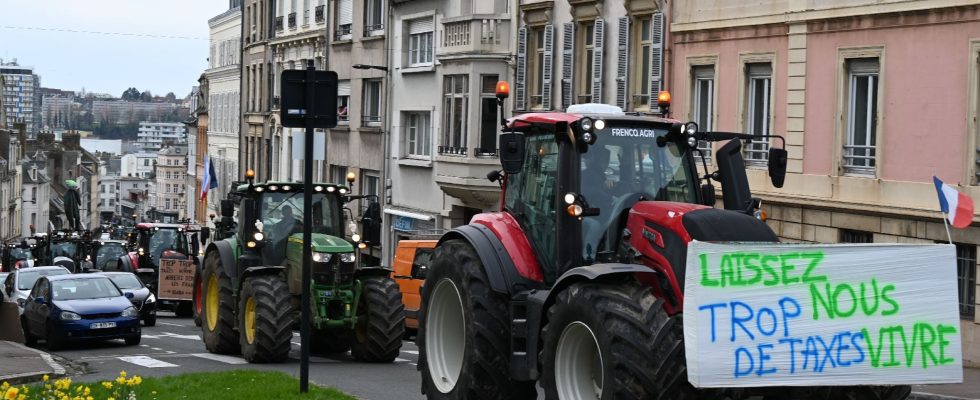Agriculture is still on the government’s menu. Awaited for more than a year, the draft orientation law on agriculture, placed under the sign of “food sovereignty” and intended for “renewal of generations”, was presented, Wednesday, April 3, to the Council of Ministers , for an adoption hoped for in the summer. Will it bring peace to rural areas?
Reworked after the agricultural crisis which shook France, to take into account certain demands of farmers, who are drowning in red tape and sometimes reluctant to comply with certain environmental standards, this text comes at the end of a stormy political sequence.
Food and agricultural sovereignty
The first point raised in this bill is agricultural sovereignty. It is defined as linked to “the sustainable production of biomass” and “the decarbonization of the economy” and food sovereignty such as France’s capacity to ensure its “food supply”.
Furthermore, it is planned to mention, from the first article, that “agriculture, fishing, aquaculture and food are of major general interest, as they guarantee food sovereignty, which contributes to defense of the fundamental interests of the nation.” The government will submit an annual report to Parliament on the subject.
Accelerate irrigation and livestock projects
The executive had committed to granting a “presumption of emergency” in the event of litigation surrounding the construction of a water reserve for irrigation. The executive’s objective: to reduce procedural delays and “purge the litigation in less than ten months”.
This “presumption of emergency” will also concern livestock building projects, including “certain installations classified for the protection of the agricultural environment”, which concerns, for example, large pig and chicken farms which are subject to authorization from State services due to their potential environmental impact.
Training and facilities
The text, since its first versions, contains the creation of a new bac + 3 level diploma, a “bachelor agro”, and the establishment of a “France services agriculture” network – a single window or entry point for applicants for installation under the aegis of the chambers of agriculture. He will be present in each department.
The bill also establishes the principle that each schoolchild benefits from at least one “action to discover agriculture”, such as a farm visit. Also planned is the acceleration of “the dissemination of knowledge regarding agroecological transition” thanks to experts who intervene in agricultural education, for example.
Less severe penalties for environmental damage
This is one of the important points of this bill. The government wants to adapt the scale of penalties and replace criminal sanctions with administrative sanctions in certain cases of damage to the environment or biodiversity. “We are not going to send a farmer to prison because he trimmed his hedge at the wrong time,” summarized the Minister of Agriculture Marc Fesneau, deeming it more relevant to establish ecological restoration obligations. The FNSEA emphasized that the main obstacle to planting hedges was administrative difficulties, with “14 different regulations”. This “corpus” will be brought together in a “single regulation”. Furthermore, the text must also contain “a provision on herd protection dogs”: breeders ask to be relieved of criminal and civil liability in the event of litigation, for example if a dog has bitten a walker.
More generally, this text aims to provide a simplified framework for action to the agricultural world to meet two major challenges: attracting workers – it does not, however, give any quantified objective. As a reminder, a third of farmers will be able to retire within ten years – and adapt production systems to climate change. And what do the unions think? The FNSEA regrets a lack of ambition on competitiveness and expects numerous amendments in Parliament. The Peasant Confederation, the third agricultural union heir to the anti-globalization struggles, deplores a “diversion of meaning” of food sovereignty, which for it is not linked to production capacity or the trade balance but corresponds to the freedom of a country to choose its food system.
